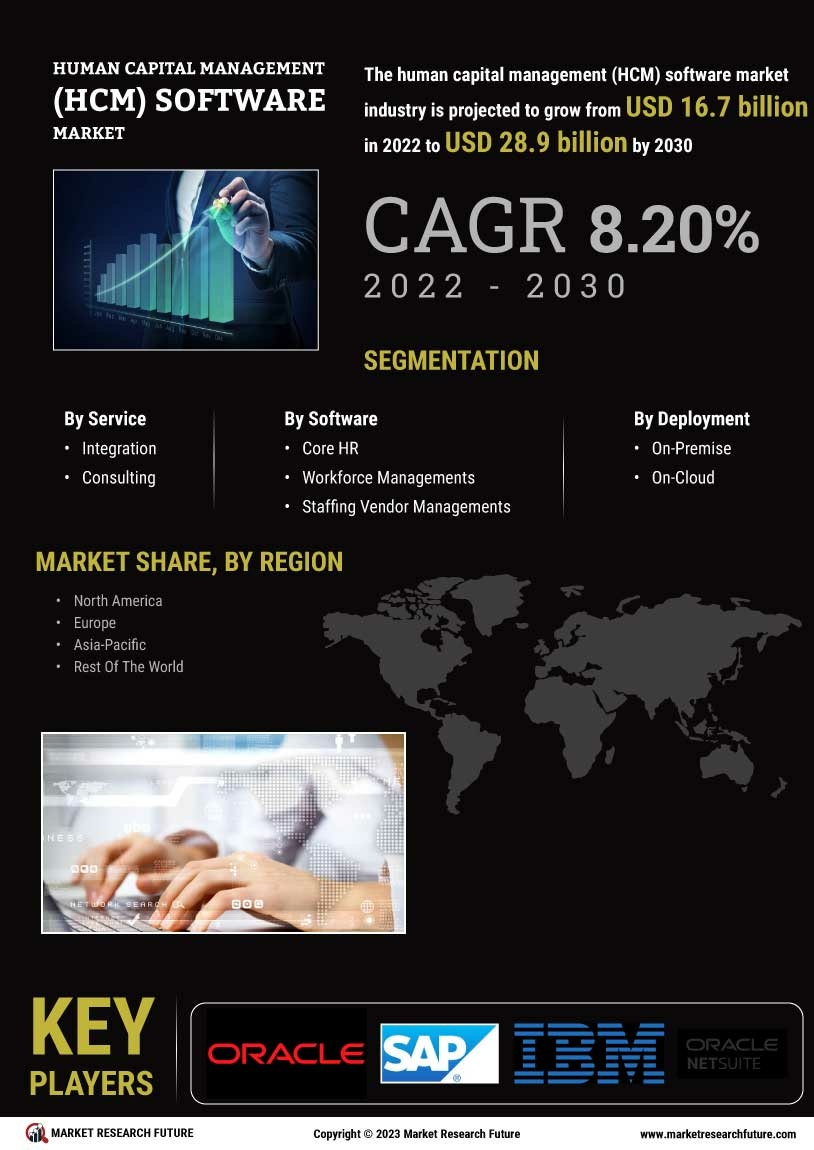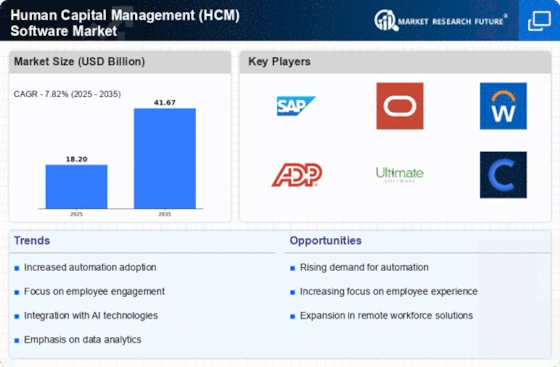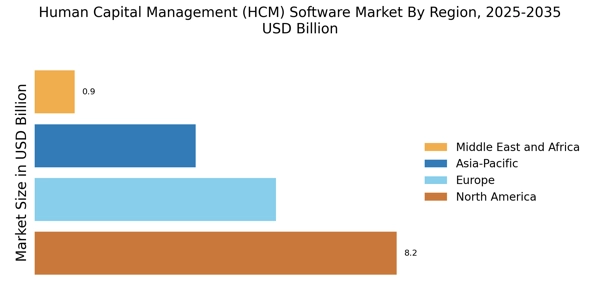Increased Focus on Employee Engagement
The Human Capital Management (HCM) Software Market is witnessing a pronounced shift towards enhancing employee engagement. Organizations are increasingly recognizing that engaged employees contribute to higher productivity and retention rates. As a result, HCM software solutions are being designed to facilitate communication, feedback, and recognition among employees. According to recent data, companies that prioritize employee engagement can see a 20% increase in productivity. This trend is likely to drive demand for HCM solutions that offer features such as employee surveys, performance tracking, and social collaboration tools, thereby fostering a more engaged workforce.
Growing Demand for Remote Work Solutions
The Human Capital Management (HCM) Software Market is responding to the increasing demand for remote work solutions. As organizations adapt to flexible work arrangements, HCM software is evolving to support remote workforce management. Features such as virtual onboarding, remote performance tracking, and employee wellness programs are becoming essential components of HCM solutions. Data indicates that companies with effective remote work policies experience higher employee satisfaction and retention rates. Consequently, the demand for HCM software that facilitates remote work is likely to surge, reflecting the changing dynamics of the modern workplace.
Regulatory Compliance and Risk Management
In the Human Capital Management (HCM) Software Market, the growing complexity of regulatory compliance is a significant driver. Organizations are required to adhere to various labor laws, data protection regulations, and industry standards. HCM software solutions are increasingly being developed to assist companies in navigating these complexities. For instance, the implementation of GDPR has necessitated robust data management features within HCM systems. As organizations seek to mitigate risks associated with non-compliance, the demand for HCM software that offers compliance tracking and reporting functionalities is expected to rise, potentially leading to a more streamlined approach to human resource management.
Shift Towards Data-Driven Decision Making
The Human Capital Management (HCM) Software Market is experiencing a notable shift towards data-driven decision making. Organizations are leveraging analytics to gain insights into workforce performance, turnover rates, and recruitment effectiveness. This trend is indicative of a broader movement towards utilizing data to inform strategic HR decisions. HCM software that incorporates advanced analytics capabilities allows organizations to identify trends and make informed decisions regarding talent management. As companies increasingly recognize the value of data in optimizing human capital, the demand for HCM solutions that provide robust analytical tools is likely to grow, enhancing overall organizational effectiveness.
Integration of Artificial Intelligence and Automation
The integration of artificial intelligence (AI) and automation technologies is emerging as a pivotal driver in the Human Capital Management (HCM) Software Market. AI-powered tools are being utilized to streamline various HR processes, such as recruitment, onboarding, and performance evaluation. This technological advancement not only enhances efficiency but also improves the accuracy of decision-making. For example, AI can analyze candidate profiles to identify the best fits for job openings, thereby reducing time-to-hire. As organizations seek to optimize their HR functions, the adoption of HCM software that incorporates AI and automation is expected to increase, potentially transforming traditional HR practices.

















